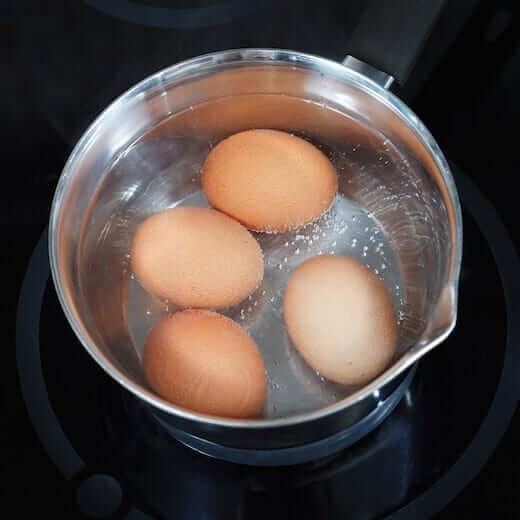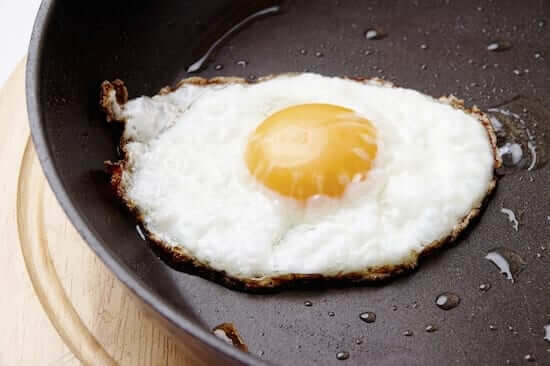How to Boil Eggs the Right Way
Most people are confident they know how to boil eggs. However, there is more to this seemingly easy task than meets the eye. Eggs contain a blend of gases and nutrients that can cause them to break while cooking. If you have had one too many cracked or green-tinged eggs, there are a few tips…
This post may contain affiliate links. Please read our disclosure policy.
Most people are confident they know how to boil eggs. However, there is more to this seemingly easy task than meets the eye. Eggs contain a blend of gases and nutrients that can cause them to break while cooking. If you have had one too many cracked or green-tinged eggs, there are a few tips to help you make perfectly boiled eggs every time.

Why You Should Know How to Boil Eggs
Eggs are one the simplest and most widely available sources of nutrition. Apart from protein, they provide your body with vitamins A, B, D, E and K. These vitamins perform multiple functions in the body, from maintaining healthy hair to preventing fungal growths in the toes. Combined, they take care of the processes that drive your entire body and prevent deficiencies that are detrimental to your health.
Besides containing almost all vitamins known to man, they are also reliable sources of minerals phosphorus and selenium. The function of phosphorus is mainly to grow, restore and protect your bones and teeth from damage. Selenium is known to help the body recover from exposure to harmful substances, as well as making antioxidants to increase immunity against diseases.
How to Boil Eggs the Right Way
Unless you have a tray of perfectly fresh eggs straight from the barn, you have to test your eggs before boiling them. If you’ve been keeping eggs in the fridge, set them aside for a few minutes to warm up to room temperature. Also, check for any rotten eggs by throwing away those that float in water.
When your eggs are warm and fresh, place them inside a pot and fill it water. Water should ideally cover eggs completely but not so much that it splatters during cooking. Use a large pot that sits eggs comfortably. Boil for 15 minutes and serve. This will give you the perfect hard boiled egg. If you want it soft of medium boiled, decrease the boiling time to 7 and 11 minutes respectively.
How to Boil Eggs for Coloring
If you want to know how to boil eggs to use for decorating (like Easter eggs), make sure you have a little vinegar and food coloring close by. Follow above instructions, adding a teaspoon of vinegar to every ½ cup of water when it starts to boil. Pour in 15-20 drops of food coloring into the water and cook for 15 minutes. Eggs should turn the color of your coloring. Remove from heat and allow colors to settle in the fridge.
How to Prevent the Eggs from Cracking
Eggs can crack for several reasons. One reason might be because the eggs are too cold. When eggs boil, they release a certain gas that increases pressure on the shells. If this gas is released too fast, eggs might break. To counter this problem, allow eggs to warm up by taking them out of the fridge and sitting them aside for a few minutes. Another way is to run them under lukewarm water.
Overcrowding eggs might also cause cracking. Other causes include boiling rotten or aged eggs and not using enough water. Make it a point to give eggs enough space in a pot and to submerge them in water to prevent burning.
Learning how to boil eggs might seem ridiculous to some, but simple mistakes can cause them to crack or be undercooked. For perfectly boiled eggs, weed out the fresh from the rotten; cover with water and to cook them for at least 15 minutes.



Leave a Comment